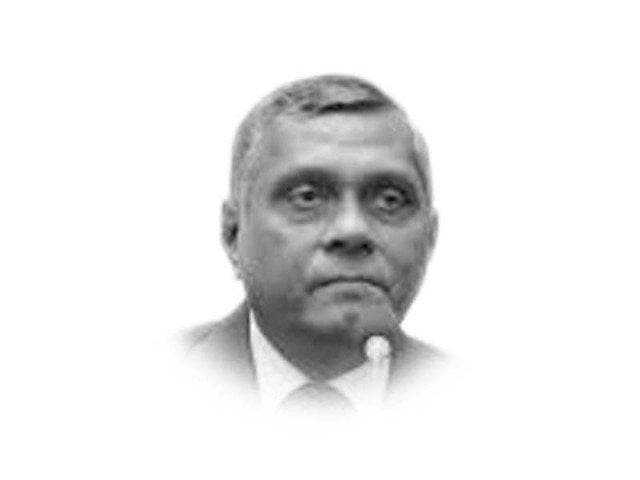
In a statement issued on July 17, the ISPR noted that the sanctuaries and liberty of action available to the terrorists of the proscribed TTP and other groups of that ilk in a neighboring country and availability of latest weapons to the terrorists are a major reason impacting the security of Pakistan.
From Pakistan’s point of view, the inability of Afghan Taliban to restrain the TTP was the main reason for the latest wave of unrest in Balochistan and Khyber-Pakhtunkhwa. The banned TTP continued to enjoy safe havens and managed to get its hands on sophisticated weapons, as it operates freely from Afghanistan.
In the last one week, the war of words between Islamabad and Kabul reflects a dangerous trend in the Pak-Afghan relations.
Taliban spokesman Zabihullah Mujahid, in an interview given to BBC Pushto service, made it clear that, “this is a naïve approach to shift the blame of one’s own failures to others” and warned of serious reaction if Pakistan used force inside Afghanistan.
During the Obama administration, Pakistan was repeatedly blamed for nourishing Taliban in the safe havens of FATA. Former President Donald Trump in his New Year tweet of January 1, 2018 accused Pakistan of cross-border terrorism targeting US soldiers — an allegation swiftly refuted by Islamabad.
In his tweet, Trump lamented: “The United States has foolishly given Pakistan more than 33 billion dollars in aid over the last 15 years, and they have given us nothing but lies & deceit, thinking of our leaders as fools. They give safe haven to the terrorists we hunt in Afghanistan, with little help. No more.”
The prevailing tension in the Pak-Afghan relations is unprecedented because the Taliban, after assuming power in Afghanistan, were expected to be supportive to Islamabad, but things turned out to be different. Not only did the Taliban adopt an arrogant, indifferent and hostile posture vis-à-vis Pakistan on the issue of the TTP operating from Afghanistan, they also deepened their ties with India.
Taliban’s defiance on Pakistan’s repeated assertion that Kabul should stop patronising TTP is amazing. Since Taliban coming to power in August 2021, it was Pakistan which went an extra mile to request the international community to grant legitimacy to the Kabul regime and also called upon the US to release several billion dollars of Afghan money so that the amount could be used for humanitarian purposes. Pakistan, despite not granting de jure recognition to the Taliban regime, did everything for peace and stability in Afghanistan. But, contrary to its expectations, the Taliban regime not only blamed Pakistan for not dealing with the TTP-led terrorism but denied its role in fomenting cross-border terrorism. Compelled by the ungrateful and hostile behaviour of the interim Taliban government, Pakistan’s defence minister was forced to call Afghanistan as an unfriendly neighbour.
There is a history of Afghan problem for Pakistan starting from the refusal of Kabul to recognise the Durand Line and supporting the movement of so-called Pakhtoonistan. In fact, Afghanistan was the only member of the UN which had opposed Pakistan’s entrance in the world body way back in October 1947. Even India had not opposed Pakistan’s membership of the UN. The irredentist claim of Afghanistan over the Pashtun territories of Pakistan and rejection of the 1893 borders of British India and Afghanistan called Durand Line has been a state policy of Kabul since 1947.
The first Taliban regime from 1996-2001, despite getting wholehearted support from Pakistan amidst global isolation, refused to endorse Islamabad’s request to recognise the Durand Line. In fact, no Afghan regime since 1947 has granted its legitimacy to the Pak-Afghan border drawn during the British India times. While the bogey of Pakhtoonistan, which was quite noticeable till the regime of Sardar Mohammad Daud in 1978, is not raised any more, but Durand Line is an issue which neither the Taliban nor any other Afghan regime has granted legitimacy.
Allegations and counter-allegations of safe heavens in Pakistan and Afghanistan is not a new phenomenon and needs to be examined from three ways.
First, for the last five decades Afghanistan has been in turmoil having grave implications for Pakistan. On July 17, 1973 King Zahir Shah, who had been in power since 1933, was overthrown by his first cousin, Sardar Mohammad Daud. Zahir Shah who was in Italy at the time of the coup was deposed, monarchy was abolished and Afghanistan was declared a republic. Since then the country has been suffering from violence, foreign interventions and wars. Sardar Daud was killed in a Soviet-backed coup in April 1978 which led to another era of instability culminating into the Soviet military intervention in December 1979. And the rest is history. It was during the People’s Democratic Party of Afghanistan (PDPA) regime which had overthrown Sardar Daud that Pakistan began to provide sanctuary to Afghan Mujahedeen groups which raised arms against what they called an ‘infidel’ and ‘communist’ regime of PDPA. When the Soviet forces intervened in Afghanistan and remained there for 10 years, Pakistan provided safe havens to Afghan Jihadi groups fighting against the Soviet forces. In fact, CIA’s biggest covert operation was against the Soviet military occupation of Afghanistan in which Pakistan along with other countries helped establish safe havens in tribal areas from where the Jihadi groups sneaked into Afghanistan to fight against the Soviet forces.
Second, the ‘safe havens’ phenomenon got an impetus when the US and its allies accused the Taliban regime of providing sanctuaries to Al-Qaeda, led by Osama bin Laden, to launch terrorist attacks against their opponents. Following 9/11, the US used that event to eliminate Al-Qaeda’s ‘safe havens’ in Afghanistan by dismantling the Taliban regime in December 2001.
Finally, the third phase of ‘safe havens’ began when the Obama administration accused Islamabad of allowing sanctuaries to Al-Qaeda and Taliban in the tribal areas of Pakistan. Although, Islamabad vehemently denied the allegations, the US launched hundreds of drone attacks in Pakistan’s tribal areas to target what it called the Taliban and Al-Qaeda sanctuaries. When allegations of ‘safe havens’ have a history of several decades, the recent phenomenon is Pakistan’s assertion that because of the TTP’s ‘safe havens’ in Afghanistan, terrorist incidents in Zhob town of Balochistan, claiming the lives of several Pakistan soldiers, took place.
Both Kabul and Islamabad need to talk about removing misconceptions about ‘safe havens’ so that acts of terrorism are prevented once and for all.
Published in The Express Tribune, July 25th, 2023.
Like Opinion & Editorial on Facebook, follow @ETOpEd on Twitter to receive all updates on all our daily pieces.





1731325890-0/trump-(24)1731325890-0-165x106.webp)







COMMENTS
Comments are moderated and generally will be posted if they are on-topic and not abusive.
For more information, please see our Comments FAQ